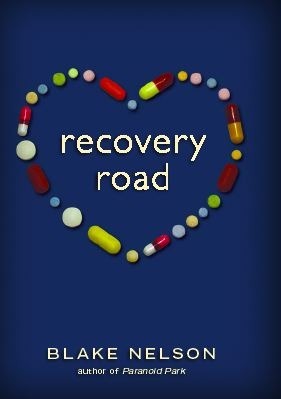
Clean
Book Description
In a world where the harsh realities of addiction loom large, six desperate teens find themselves trapped in a rehabilitation facility that feels more like a prison than a place of healing. As their stories intertwine, tension mounts and secrets begin to unravel, exposing raw emotions and deep-seated fears. Friendships blossom amidst the chaos, but trust is fragile, and betrayal lurks in the shadows. With the clock ticking, can they confront their demons and escape the cycle that binds them? When everything hangs in the balance, what lengths will they go to reclaim their lives?
Quick Book Summary
"Clean" by Amy Reed is a gripping contemporary novel that explores the lives of six teenagers struggling with addiction, secrets, and the pressures of recovery. Set within a restrictive rehabilitation facility, the story is told through multiple perspectives, allowing readers to intimately experience the fears, hopes, and vulnerabilities of each character. As the teens confront their own personal demons, they are forced to navigate not only the rigid confines of rehab but also the complicated dynamics of new friendships and fragile trust. Bonds are formed and broken as confessions surface, challenging each character’s sense of self-worth and belonging. Ultimately, "Clean" is a raw and realistic portrayal of the challenges of addiction and recovery, shining a light on the resilience required to face the past, build supportive relationships, and seek redemption.
Summary of Key Ideas
Table of Contents
The Struggles of Addiction and Recovery
"Clean" delves into the harsh and often misunderstood world of teenage addiction by bringing together six young characters from different backgrounds in a rehabilitation center. The novel uses a rotating narrative, giving each teen a voice and allowing the reader to see how addiction manifests and impacts people in unique yet familiar ways. The rehab center, strict and isolating, serves as both a crucible for growth and a catalyst for conflict, setting the stage for honest exploration of each character’s reasons for being there.
Building Trust and Friendship in Adversity
Within the claustrophobic environment of rehab, the teens are forced into close proximity, challenging them to examine not only their relationships with substances but also with one another. Friendships blossom amid the chaos, yet are constantly threatened by suspicion, misunderstandings, and the weight of past betrayals. As they are pushed to open up during group therapy sessions, the story powerfully illustrates both the vulnerability and the strength required to form genuine connections under duress.
Secrets, Confessions, and Self-Discovery
A central theme of "Clean" is the exposing of secrets and the journey toward self-discovery. As the teens share their stories, painful truths emerge about their families, personal struggles, and the scope of their addictions. These revelations, sometimes wrenched out in anger or desperation, force each character to confront the reality that healing cannot begin until they are honest with themselves and others. The interplay of confession and denial captures the true complexity of recovery.
The Diverse Nature of Mental Illness
Mental illness presents a multifaceted spectrum throughout the novel, highlighting depression, anxiety, trauma, and coexisting disorders that often accompany substance abuse. Reed does not assign blame; instead, she illuminates how these conditions exacerbate addiction and complicate the path to sobriety. The diversity of the characters’ experiences fosters empathy and challenges stereotypes, showing that no single story defines the struggle with mental health and addiction.
Hope, Relapse, and the Continuing Journey
As the narrative progresses, the fragile hope of recovery contends with setbacks, moments of relapse, and fear of the outside world’s pressures. The novel does not promise easy answers or tidy resolutions; instead, it offers a realistic glimpse at the ongoing journey of staying clean. In the end, "Clean" underscores the importance of self-forgiveness, mutual support, and the resilience needed to break free from the cycles of addiction, suggesting that while recovery is hard, it is possible with honesty, community, and courage.
Download This Summary
Get a free PDF of this summary instantly — no email required.





